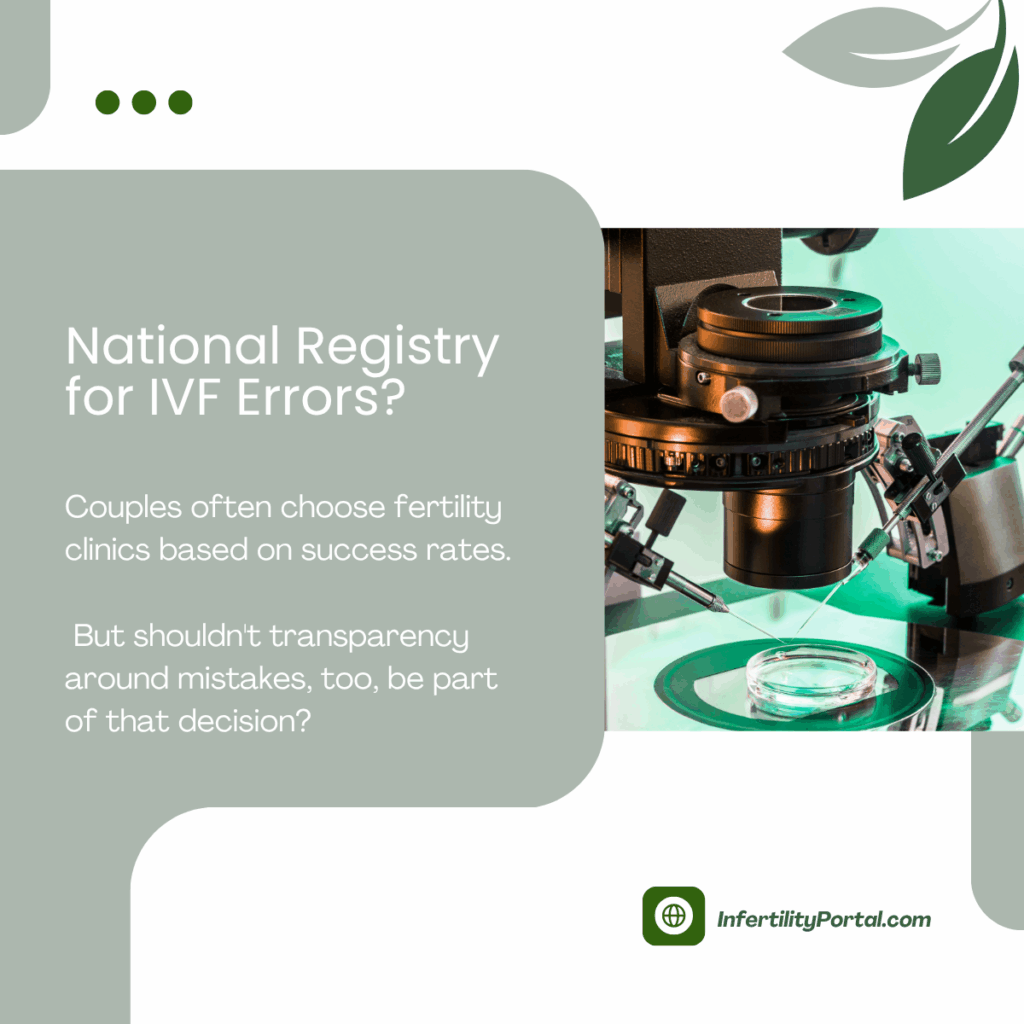Should IVF Clinics Be Required to Report Their Mistakes?
When patients choose a fertility clinic, they usually look at one thing first: success rates. Clinics often promote how many pregnancies or live births they have helped achieve. These numbers are important, but they tell only part of the story.
There is another side that patients rarely see.
What happens when something goes wrong?
Fertility treatments involve delicate procedures and sensitive materials. A single mistake can lead to lifelong consequences. These are not common, but they do happen.
Some examples include:
-
Embryos implanted into the wrong woman
-
Eggs, sperm, or embryos destroyed by accident
-
Improper storage that leads to loss of genetic material
-
Mix-ups between donor samples
-
Failure to report equipment malfunctions
In most countries, there is no required public reporting of these mistakes. That means patients cannot easily learn whether a clinic has made errors in the past.
Why Transparency Matters
The medical field holds high standards for safety and ethics. Patients deserve to know not only how often a clinic succeeds, but also what happens when it fails. Just like hospitals report on infections or surgical complications, fertility clinics should also report major errors.
One clear example comes from Australia.
Monash IVF, which is listed on the stock exchange, had to report two cases where embryos were implanted into the wrong women. Because it is a public company, it was required by law to disclose these incidents.
If it had been a privately owned clinic, those errors might never have been made public.
This raises a fair and urgent question:
Should all fertility clinics, whether public or private, be required to report serious errors?
The Case for a National Registry
A national registry of IVF mistakes would not shame clinics. It would help improve patient safety. It would allow patterns to be spotted, training to be improved, and policies to be strengthened. It would help patients make informed decisions based on both success and risk.
The same way we publish data on medical complications, we should do the same for fertility care.
How Some Countries Keep IVF Patients Informed
There are a few countries that do require fertility clinics to report serious errors:
-
United Kingdom – By law, clinics must report any “serious adverse incidents,” including embryo mix-ups and storage failures. In 2022–2023, there were zero Grade A (most severe) incidents reported, but a total of 517 Grade B and C issues were disclosed.
-
Victoria, Australia – Following publicized cases involving Monash IVF, health ministers have pushed for a new independent accreditation body and mandatory event reporting across all clinics.
-
Denmark – Under the Danish Patient Safety Act, health professionals are required to report adverse events across all healthcare services, including fertility clinics. These reports are compiled into a national system focused on learning and improvement.
These examples show that clear reporting standards already exist and are operational. Implementing similar systems in other countries should not be overly difficult. It is in the interest of IVF patients to be fully informed. It is not just about success rates but about safety and accountability.
Patients have a right to know.


